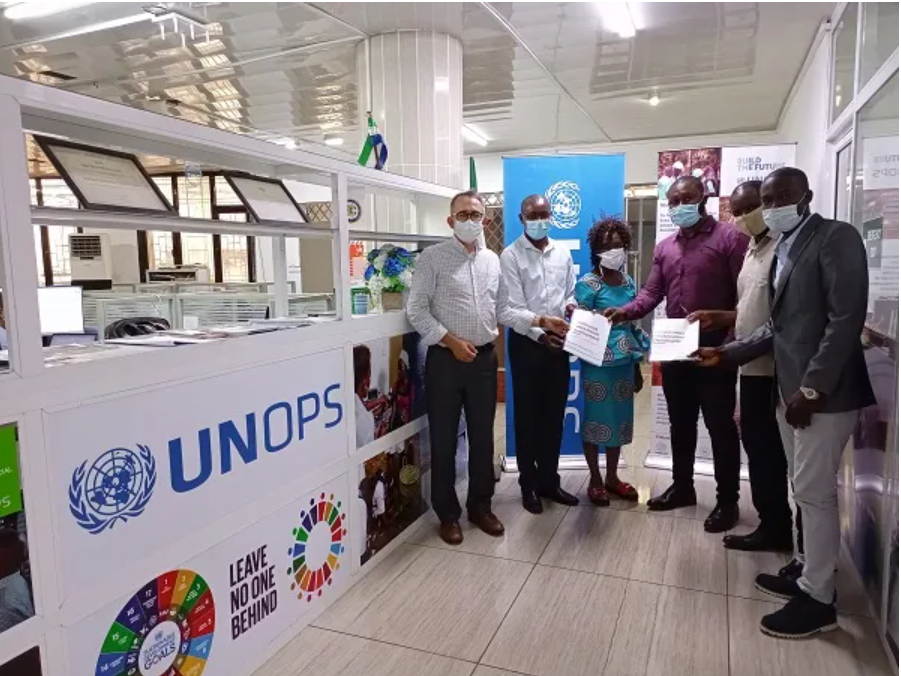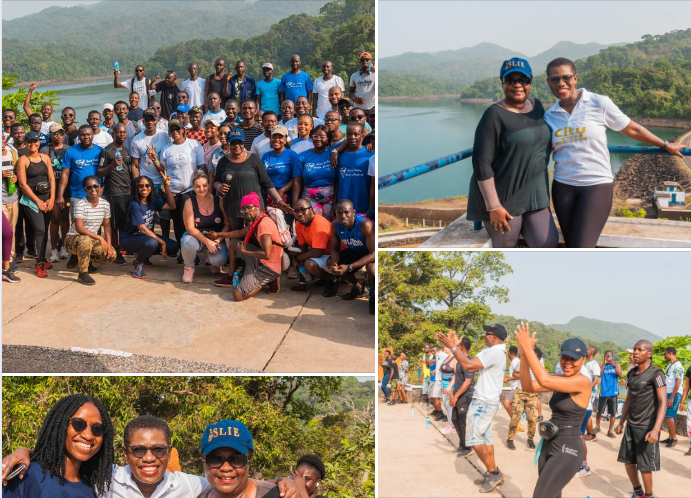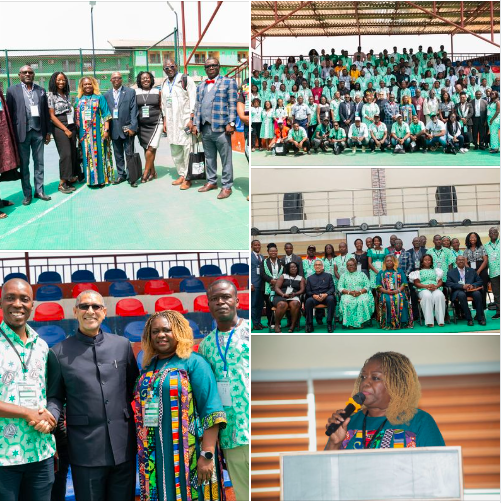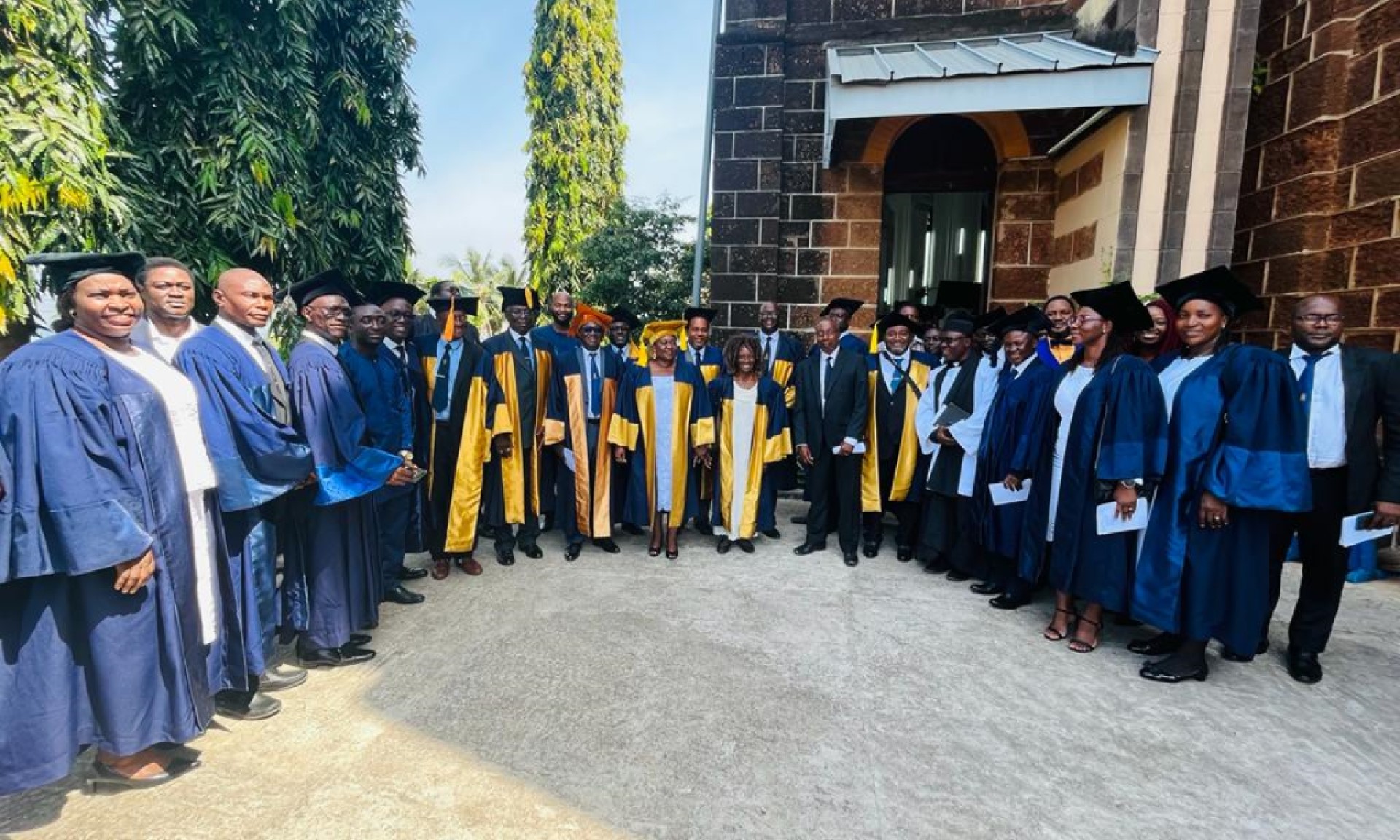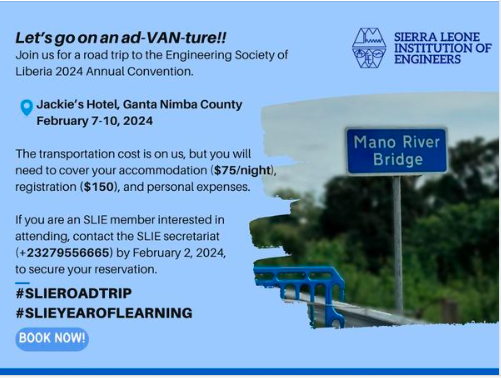SLIE/PERC continues engaging various heads of institutions and MDAs on the new Continuous Professional Development (CPD) framework. On Thursday, 16th September 2021, the SLIE/PERC CPD team, met with the management of UNOPS, to introduce the new CPD framework, and conduct a training needs survey for their engineering employees, at the UNOPS office, Aberdeen. In attendance were, Ing Louise Chaytor, CPD team lead, graduate engineers, Thomas Michael Salankole, and Abdul Kaadiru Kallon, CPD Team volunteers, Ing. Nick Gardner, Country Manager, Engineer Ezekiel Musili, Project Manager, and Ing Emmanuel Koroma, Project Engineer, UNOPS. Ing Chaytor, outlined the purpose of the meeting was to engage UNOPS in ensuring that all their engineers register with SLIE/PERC, and for introducing the new SLIE/PERC CPD framework. Through this framework, engineers will need to engage in activities, trainings, mentorship and other developmental activities, that will improve their skills, and enable them to keep up to date with the latest technology. It will now be a requirement for annual renewal of membership with SLIE. She explained to the UNOPS team, that in order to make this new CPD framework meaningful and effective, SLIE/PERC will want the management of UNOPS to incorporate CPD into their performance appraisal system. If incorporated, engineers will feel greater responsibility in undertaking CPD activities annually. However, it is not mandatory that UNOPS incorporate this framework in their performance management, but it is something SLIE/PERC will like to encourage in the institution. Ing Ezekiel Musili, a professional civil engineer, having twenty (20) years professional work experience in roads and bridges, in four countries in Africa, namely, Kenya, Tanzania, South Sudan and Sudan, mentioned that he is currently the Project Manager UNOPS Sierra Leone. Eng. Musili was worried about the minimum professional development units required annually not being achievable or realistic. His concern was that when young engineers join their organisation, they need time to learn on the job and acquire skills and thus, cannot undertake too many activities. As an organization, undertaking training is one of their key values, as they usually plan trainings through the supervisors on consultation with employees. They have initial discussions usually in the beginning of the year and a midyear review, before final planning. He would like SLIE/PERC to present their trainings before the end of the year.

Engaging with Management team at UNOPS
Ing Musili asked further questions on how to use this framework, and how the institution will monitor engineers’ activities in this framework. Ing Chaytor responded to these questions and presented a copy of the CPD booklet, which gives detailed information of the new framework. Ing. Nick Gardner, was concerned about the health and safety standards especially in the construction sector, because most of these construction companies are owned by business people who do not adhere to health and safety requirements, rather than engineers. He recommends that if SLIE/PERC intends to conduct health and safety training, it should be more practical rather than theoretical. Most people can identity hazards on paper but can’t identify them on site. Ing Emmanuel Koroma noted that health and safety standards is a big problem for construction sector in Sierra Leone. He explained that they are usually challenged with contract companies’ compliance to health and safety. Nevertheless, he is happy with the drive of SLIE/PERC in improving the standard of engineering in Sierra Leone. Ing. Chaytor explained that there will be engagement with technical training colleges and vocational training institutes which produce foremen. This is crucial to helping technicians understand the importance of health and safety. In addition, consideration is being given to inclusion of technicans, technologists and master craftsmen in SLIE membership. The management of UNOPS present at the meeting prioritized training courses in the following areas: Health & safety, Quality Site supervision, Quality Control, Contract Management, Maintenance and Design which is part of Project management, AutoCAD, Asset Management, Construction Management, and waste Management. Regarding Waste Management, recycling of solar products like solar batteries, panels, inverters, is of high interest to UNOPS. Ing. Musili assured the team that he would complete his membership of SLIE

